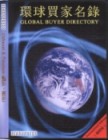Email is one of the most cost-effective direct marketing tools to promote products and develop valuable relationships with existing customers. However, the email marketing environment is changing. There are a new law (named CAN-Spam Act) against spam in the United States in 2004 and other laws are being created around the world. The new law covers all emails for commercial advertisement or promotion of a product or service but excludes emails related to transactional relationships such as follow-ups to client requests, and billing statements, etc.
In order to avoid spamming (sending unsolicited commercial email), you must strictly follow the guidelines below:
1) Send email to people who consent to receive it by using permission mail list
2) Don't use softwares or an automated means to collect email addresses in internet
3) Don't purchase or rent harvested email addresses (usually in the generic form such as info@domain.com, sales@domain.com, etc.). Email addresses obtained by crawling websites is illegal.
4) Don't use third party email addresses or domain names to send emails without their permission
5) Don't falsify headers (your email originating address or transmission path)
6) Use a subject line that accurately describes the content of your message. Avoid deceptive subject line.
7) Include a real return email address and unsubscribe link in your email. The un- subscribe requests must be honored within ten days.
8) Label the email as an advertisement in the subject line when you send unsolicited commercial email
9) Include your company name, actual full postal address, and phone no. if you send commercial email (or promotion)
10) Add a message to indicate the email's sexual nature in the subject line or the top of the email if you send sexually related email.
As a conclusion, it is very important to send permission emails according to the recipient's need and request. Do it but don't be excessive. Our Global Buyers Directory is a good lead source and international business marketing tool for export promotion.

Home | About Us | Contact Us | Link Exchange | Partner Program | Suggestion | Our Blog | Site Map | Product Lists | FAQ | Demo | Support | Purchase | Secure Payment | Anti Spam Policy | License Agreement | Privacy Policy | Term of Sales | Usage Agreement |Free Newsletter | Export Resources | Marketing Tools | Marketing Tips | Useful Links




